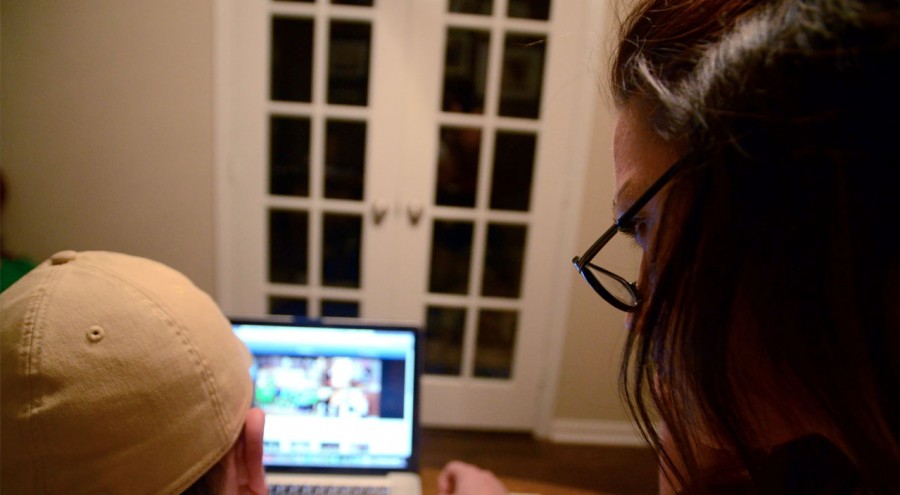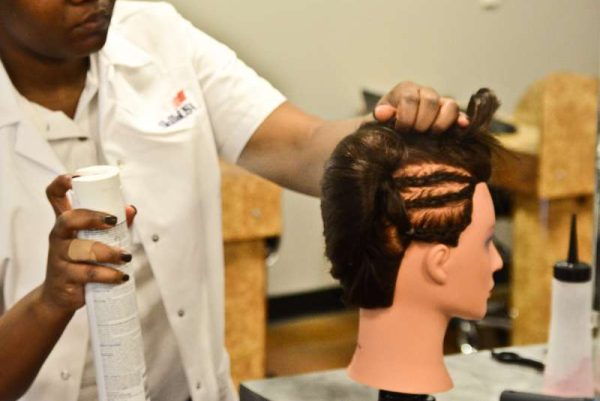Helicopter parents take flight
Helicopter parenting can come in several forms from monitoring their children’s actions on social media to tracking their cellphone activity.
The phone calls, the constant text messages, the monitoring, the choosing of clothes, and the constant checking of social media sites: these are just a few of the symptoms of the common helicopter parent. The modern definition of a ‘helicopter parent’ is an overbearing and controlling parent who is vicariously living through their child.
In spite of her mother’s helicopter parenting tendencies, senior Ashley Fountain understands helicopter parents.
“Helicopter parents exist because they honestly want the best for their kids,” Fountain said. “I don’t think they set out to purposefully annoy or bother their kids. They just want to make sure their kids become successful, and that is just fine.”
A senior who will go by the name of Katy, for her parent’s sake, shares just a few of the restrictions and rules her parents set for her.
“I have passcodes to all of the technology in my house,” Katy said. “My parents need passcodes to my phone, Facebook, Instagram, and all the social media I have. And they have the right to take up my phone at any time and look through text messages, phone calls, everything. I have restriction on movies as well. No rated R movies no matter what. And they like to go through and screen the movies based on language or sexual content. So for new movies, I have to wait for mom and dad to see it before I do”
Many agree that it is their love for their children which drives them to be obsessive, but that is still no excuse, according to Katy.
“They try too hard to make sure their child does perfectly and is a cute, little poster child of perfection,” Katy said. “Children make mistakes, but that’s a part of learning, and that shouldn’t negatively impact how parents treat them for the rest of their teenage years. If their son or daughter messed up, they should take a step back, and let them fix the problem instead of hovering over the child’s every move.”
With such possessive parents controlling their children’s life, Science teacher Kim Bickham says it will negatively affect their children’s lives.
“It is overall detrimental,” Bickham said. “The child doesn’t know how to stand on their own since the parents are always there to try to bail them out and fix everything instead of making them be responsible.”
Sharing a similar experience, Bickham explains how she dealt with her child that was struggling with high school.
“With one of my kids that really struggled, I really did just have to turn him loose and let him suffer any consequences,” Bickham said. “I thought that it was more important to do it now, in high school, than when they were in college.”
Despite this, Bickham understands the parents’ reluctance of letting go.
“I understand that they have a concern for their child and I can sympathize with that,” Bickham said. “. It’s very difficult for parents to let go and allow for their child to accept responsibility, and basically take ownership of their learning. I know as a parent that I had to learn to do that so that my kids could stand up on their own two feet.”
Regardless of how “annoying” her parents act most of the time, she still loves them and understands why they are so overprotective due to their backgrounds.
“My mom was raised in a very good home so she wants to have that same kind of home in her house,” Katy said. “And my dad was raised in a not so good home, so he wants to not end up like his family. So they’re both trying really hard to make sure that we get the best, but they go a little overboard in trying to protect us and in making sure that we have everything we need.”






